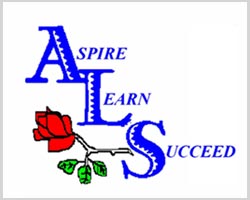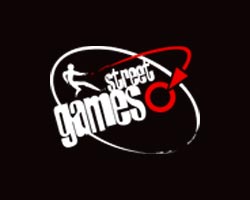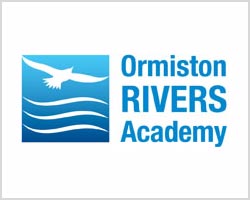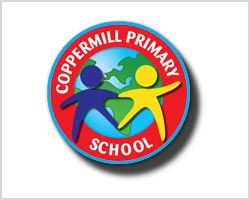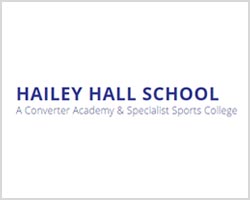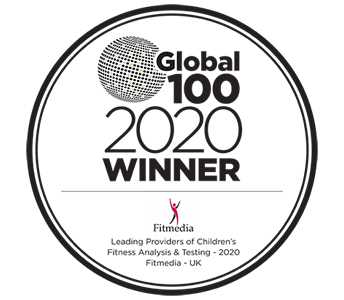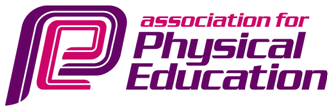Skills and Aptitude Assessments
Revealing Physical Abilities
The increasing complexity of school means that we understand that it’s simply not always possible teachers have the required knowledge and expertise in all areas.
We have products designed specifically to help teach and monitor FMS and physical literacy:
Physical literacy is as important as the ability to read and write. Without physical literacy, children’s interest and ability to participate in any kind of physical activity is vastly reduced.
The most important step toward developing physical literacy is mastering Fundamental Movement Skills (FMS).
FMS are basic movements developed in early childhood. They are based around Locomotion (running, jumping), Object Control (throwing, catching) and Body Control (balance, stability).
The skills are the foundation for developing the movement patterns required for an active healthy life.
Therefore, for young children, (particularly those aged 5-11), ensuring they are developing their FMS is vital.
For more information, please contact us
Easy to use Resource for teaching Fundamental Movement Skills
Putting the right resources teachers need so that all children will benefit, will improve learning and development
The Association for Physical Education (afPE) and Fitmedia have joined forces to create a bespoke resource to help support the teaching of physical competence in primary schools.
The cards are handy and easy to use, and are specifically designed for Key Stage 1 children, whether they are learning the skills for the first time or consolidating previously learned skills. They can also be used with older children, to reinforce their existing learning or as warm up activities before games and fun.
What are the Lesson Cards?
The Lesson Cards are a pack of 11 separate lessons, which cover the following four areas of proficiency:
- Object Control
- Locomotor Proficiency
- Body Control
- Flexibility
Each card focusses on a different skill within one of those areas (eg throwing, catching, and jumping).
The card explains the skill and why it is important. It then provides an exercise for teachers to demonstrate and teach the skill to be learnt.
Each card then contains Practice Activities which the children can then play when they have completed the basic exercise. This gives the opportunity for children to apply the skill in both competitive and non-competitive contexts.
Why use them?
Teaching physical competence is not easy.
The lesson cards from afPE and Fitmedia are a simple and practical way to deliver effective PE:
- They provide simple and straightforward activities to teach children the skills that they need.
- The activities can be carried out anywhere (inside or outside) and include many children at the same time.
- They require no specialist equipment or expensive kit, and can be done with resources that would already be present in the school.
Are your children improving?
The lesson plans can be combined with the Fitmedia Fundamental testing programme, to make sure they have learnt and mastered each fundamental movement skill.
For more information, please contact us
PE and Sport assessments made easy
You get many benefits from proper control of your assessments
With our help we can help you maintain control without sacrificing too much time, effort and resources.
The mastery of Fundamental Movement Skills is crucial for children.
But assessing FMS is a time-consuming and difficult process. Each skill must be demonstrated, observed, practised, executed and scored against a set of standardise criteria. At the same time, boys and girls develop at different rates and children’s physical literacy improves with age. And it can be difficult to keep consistent scoring between different situations, classes and time periods.
Fitmedia Fundamental is the first physical assessment system which has been designed to address these measurement issues.
It is specifically aimed at primary school children, and assesses fundamental movement skills and basic motor development for children in Key Stage 1 and 2.
It comprises six different types of measurements, including Body Control, Object Control, Flexibility and Locomotor Skills. These identify and assess how the child’s movement and control skills are developing, to ensure that they have mastered the basic physical skills needed as they grow.
In addition, the system includes some basic assessments such as handgrip and sprints, to measure the child’s basic fitness levels. This enables the child’s teachers to identify early any causes for concern, such as low fitness in any particular area.
The testing is quick, fun and easy to carry out. Our qualified trainers come to you and assess the children on site,which can be done in curriculum time. We bring all the equipment and do everything – you don’t need to do anything!
The assessments can be linked with other measurements, including our mental health assessments
Benefits of Fitmedia Fundamental
Fitmedia Fundamental is unique and the only physical measurements system which:
- provides a scientific assessment of the development of a child’s key physical skills
- measures both the development of physical skills and basic fitness
- provides assessments which are specifically tailored to each age group, to take into account different stages of development
- is based on extensive scientific paediatric data from the EU, Scandinavia and the UK.
For more information, please contact us
Effortlessly manage your school’s PE and sport assessments
Fitmedia Movement system effortlessly helps you get your physical assessments under control and keep them that way
You get the numerous benefits that come from proper control of your assessments, access to on-line technology, with limited time, effort and minimal resources.
Physical assessment for 10-18 year olds
We at Fitmedia are passionate about the improvement of health in children and young people.
But the last few decades have seen a decline in the physical fitness of young people, whilst obesity and weight related problems have increased.
We want to stop this decline, and improve health and physical activity levels.We feel that the best way to do this is to help children understand fitness.
We do this by showing them what they can do – what they are good at, what they excel at, and where they can improve.
Our Fitmedia Movement system assesses the physical abilities of children, and to engage young people in physical activity.
The system uses simple and familiar measurements (such as sprint, jumps and handgrip) to provide a detailed picture of an individual’s health status and natural physical aptitudes.
Uniquely, the Fitmedia Movement software then interprets individuals’ scores on each test by automatically comparing them with published reference data of what would be expected for their age and sex.
This benchmarking provides a ranking which shows how good their fitness levels are for their stage of development.
For example, a student’s long jump distance of 1.5m at age 11 would be in the 80th percentile. At aged 14, he jumps a distance of 2.1m, which is longer: but, for his 14 year age group, this score would only be in the 50th percentile, indicating that in fact, his fitness has declined.
Finally, Fitmedia Movement records the scores and percentiles in a secure, centralized database which can be searched and analysed by the individual and their network (eg PE teachers, coaches etc), with our license agreement you will gain access to our database and other resources.
Benefits of Fitmedia Movement
Fitmedia Movement is the only physical assessment system which:
- is designed so that all children, of whatever physical ability, can find an area they are naturally suited for
- is based on published research and established protocols and a proven and credited model
- provides a method to monitor a child’s development over the long term
- enables immediate improvement
- rewards improvement, rather than performance
- uses a score protocol which enables identification of health injury risk
- provides an absolutely objective measure of a child’s physical fitness, based on where they should be for their age
For more information, please contact us
Expertise in assessing and monitoring childrens health
If you are yet to visualise how to carry out assessments in this area, Fitmedia can help you
Children’s mental health is as important as their physical health. Ensuring children have good mental health is as crucial as ensuring they are physically fit.
We carry out specialist assessment and monitoring in this area. We have extensive experience and resources to measure the following:
- Self Esteem – how they children feel about themselves and their abilities
- General Wellbeing and Satisfaction – how they feel about the key aspects of their life, such as friends, school and appearance
- Physical Self Efficacy – the extent to which they are able to be active outside school with their friends and family. PSE is a good indicator of how well prepared children are to be active and participate in physical pursuit
- Specific sports/activities – how they feel about the activities they have been participating in
- Academic subjects – how they feel about particular subjects and their skills in those subjects
- Continuation – how likely they are to continue participating in specific activities
Our Mental and Social health assessments can be used in a variety of scenarios, including:
- to help monitor a child’s progress and development
- as part of impact evaluation for a specific project
- to help identify those most in need or at risk.
For more information, please contact us
Improve user engagement and provide quick, hassle-free access to all apps and resources.
By putting the resources staff want to be able to use in the hands of every student, teachers are free to utilise the potential of technology to improve learning and engagement.
Continuous health monitoring
Fitmedia’s expertise and approach in health monitoring is highly beneficial to help support children’s overall health.
Making sure that children are developing as they should is crucial.
We can provide continuous monitoring, to help:
- Ensure appropriate rate of development
- Monitor children’s overall wellbeing
- Help children to improve, through goals and objectives
- Evaluate the effectiveness of teaching and coaching program


